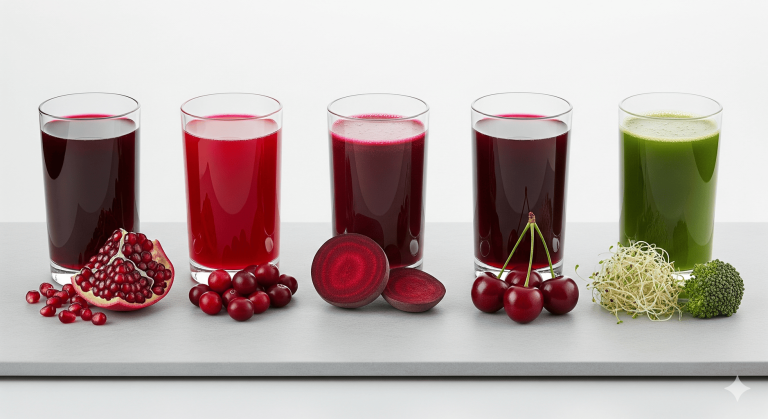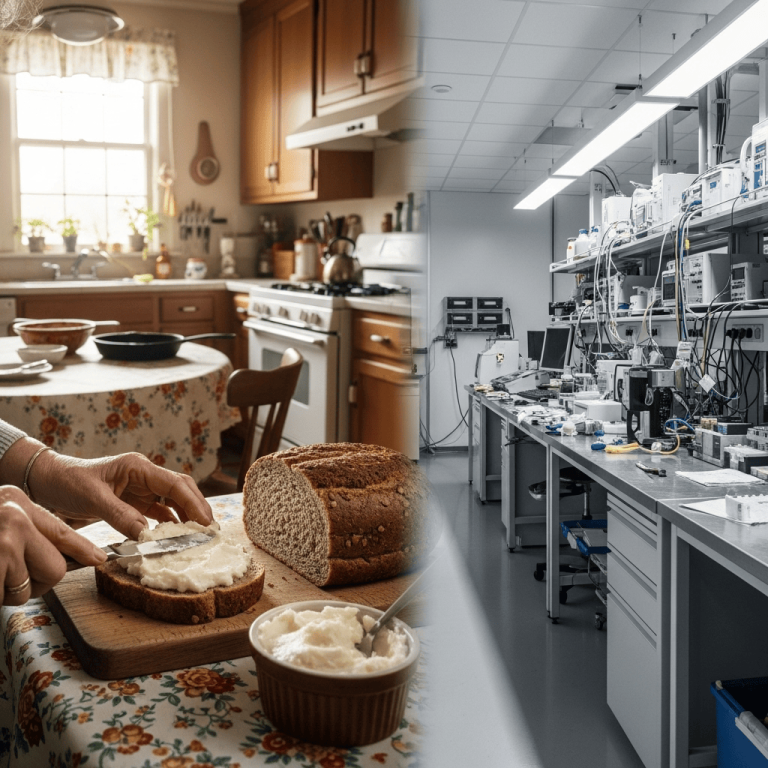Unlock the Longevity Code: 3 Kitchen Superfoods That Act Like Natural Antibiotics and Turn Back Your Biological Clock
Did you know that the key to a longer, healthier life might be hiding in your kitchen? At a time when antibiotic resistance is becoming one of the greatest global health threats, nature offers us powerful solutions that have been known to humanity for thousands of years. This isn’t magic; it’s pure science. Discover how garlic, onion, and ginger—humble staples of our pantries—can become your secret weapons in the fight for health and longevity.
At LiveLongerNow, we believe that understanding and harnessing the power of nature, combined with the latest scientific discoveries, is the foundation for breaking the 100-year barrier in full health. Forget about chemical supplements with questionable effects. The real power lies in what you eat every day.
Garlic: Misinformation for Bacteria, Information for Your Genes
When you crush a clove of garlic, you release a powerful compound: allicin. It’s responsible for the characteristic pungent smell, but more importantly, it’s the plant’s natural defense mechanism that acts as a precision antibiotic in our bodies.
How does it work? Studies published in prestigious journals like the “Journal of Antimicrobial Chemotherapy” show that allicin can disrupt communication between bacteria (a process called quorum sensing), preventing them from forming biofilms—the armored shields that protect them from antibiotics.
“Nature has created mechanisms in garlic that our pharmacology is still learning from. Allicin is an intelligent molecule that doesn’t destroy our gut flora like synthetic antibiotics do, but instead targets pathogens.” – says Dr. Michael Greger, an expert in clinical nutrition.
How to consume it for maximum benefits?
- Form: Always fresh and crushed! Heat destroys allicin. Crush a garlic clove and wait 10 minutes before adding it to your dish (e.g., a salad) or consuming it. This allows the enzyme alliinase to activate and produce allicin.
- When: Regularly, as a preventive measure. During periods of increased infection risk (autumn, winter), you can increase your intake to 1-2 cloves per day.
- Contraindications: Individuals taking anticoagulant medications (e.g., warfarin) should be cautious, as garlic can enhance their effects. Also, avoid it before scheduled surgeries.
Onion: A Multi-Layered Shield for Your Cells
The onion is not just a base for countless dishes; it’s a treasure trove of quercetin—a potent flavonoid with anti-inflammatory, antiviral, and antioxidant properties. As research from The American Journal of Clinical Nutrition demonstrates, quercetin acts like a protective shield for our cells, neutralizing the free radicals that accelerate the aging process.
Health Impact:
- Immune Support: Quercetin modulates the immune system, helping it fight infections more effectively.
- Heart Health: It helps maintain healthy blood pressure and the elasticity of blood vessels.
- Synergy with Garlic: Onions and garlic, often used together in cooking, form a duo with enhanced health-promoting effects.
How to incorporate it into your diet?
- Form: The highest concentration of quercetin is found in the outer layers, just beneath the skin—try to peel it as thinly as possible. Red onions contain the most. Consume it raw in salads or as a topping for sandwiches.
- Indications: Ideal for people struggling with recurrent infections, allergies (quercetin has antihistamine properties), and for anyone looking to fortify their body.
Ginger: The Fiery Guardian of Your Digestive and Immune Systems
Used for centuries in Ayurvedic medicine, ginger owes its power to gingerols. These bioactive compounds have scientifically proven, potent anti-inflammatory and antibacterial properties. Research published in the “Journal of Ethnopharmacology” has shown that ginger extract is effective at inhibiting the growth of many types of bacteria, including those responsible for gum disease.
What do you gain by reaching for ginger?
- Antiviral Action: Ginger is particularly effective against viruses that attack the respiratory tract.
- Digestive Relief: It stimulates the secretion of digestive juices, alleviates nausea, and has a relaxing effect on the gut.
- Inflammation Reduction: Chronic inflammation is one of the main drivers of the aging process. Gingerols help to quell it at a cellular level.
How to use it?
- Form: The fresh root is the most potent. Add grated ginger to tea (don’t pour boiling water over it to preserve the valuable compounds), smoothies, soups, or Asian dishes.
- When: Perfect at the first sign of a cold, for digestive issues, or as a daily part of an anti-inflammatory diet.
- Contraindications: Like garlic, it may interact with anticoagulant drugs. People with peptic ulcer disease should use it in moderation.
Your Journey to Longevity Starts Now
Garlic, onion, and ginger are just the beginning. Nature offers us an entire pharmacy from which we can draw to live longer, healthier lives. Remember, the key is consistency and integrating these ingredients into a balanced, whole-food diet.
Do you want to discover your true longevity potential?
Your habits, lifestyle, and diet have a profound impact on how long and how well you will live. We have created a unique tool that, based on a scientific questionnaire and AI analysis, will prepare a personalized longevity report just for you. Find out what you can change today to add years to your life and life to your years.
Link -> Take the quiz and discover your potential!
Interesting Scientific Publications:
- Ankri, S., & Mirelman, D. (1999). Antimicrobial properties of allicin from garlic. Microbes and Infection, 1(2), 125-129.
- Grzanna, R., Lindmark, L., & Frondoza, C. G. (2005). Ginger—an herbal medicinal product with broad anti-inflammatory actions. Journal of medicinal food, 8(2), 125-132.
- Kelly, G. S. (2011). Quercetin. Alternative Medicine Review, 16(2), 172-194.
- Bayat, M., et al. (2023). Garlic (Allium sativum) and its main compound allicin as a promising antibacterial agent against multidrug-resistant bacteria. European Journal of Clinical Microbiology & Infectious Diseases.







